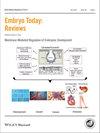年轻微生物群对炎症性疾病的影响——来自动物研究的经验教训。
Q Medicine
引用次数: 27
摘要
慢性炎症性疾病在西方化世界呈上升趋势。这种上升与一系列环境因素有关,如出生方式、农村与城市生活条件以及抗生素的使用。这些环境因素也会影响生命早期肠道微生物群(GM)的定植和成熟——越来越多的证据表明,这些因素对人类健康的负面影响是通过转基因改变介导的。肠道的定植从出生开始启动免疫系统,推动对无害微生物和饮食抗原的耐受性,以及对入侵病原体的适当反应。这种早期的定植对于建立健康的转基因至关重要,并且在整个生命过程中,转基因和免疫系统的平衡相互作用是维持健康的关键因素。免疫系统失衡会增加晚年罹患炎症性疾病的风险。在研究转基因对疾病机制和进展的影响中,动物模型是必不可少的,重点包括对妊娠期和围产期转基因修饰的研究。在这里,我们提出了动物研究的概述,这些研究有助于我们了解转基因在生命早期的功能,以及改变如何影响某些幼年发病炎症性疾病的风险和表达,包括干预措施,如出生模式、抗生素和益生菌。本文章由计算机程序翻译,如有差异,请以英文原文为准。
The influence of the young microbiome on inflammatory diseases--Lessons from animal studies.
Chronic inflammatory diseases are on the rise in the Westernized world. This rise has been correlated to a range of environmental factors, such as birth mode, rural versus urban living conditions, and use of antibiotics. Such environmental factors also influence early life gut microbiota (GM) colonization and maturation--and there is growing evidence that the negative effects of these factors on human health are mediated via GM alterations. Colonization of the gut initiates priming of the immune system from birth, driving tolerance towards non-harmful microorganisms and dietary antigens and proper reactions towards invading pathogens. This early colonization is crucial for the establishment of a healthy GM, and throughout life the balanced interaction of GM and immune system is a key element in maintaining health. An immune system out of balance increases the risk for later life inflammatory diseases. Animal models are indispensable in the studies of GM influence on disease mechanisms and progression, and focus points include studies of GM modification during pregnancy and perinatal life. Here, we present an overview of animal studies which have contributed to our understanding of GM functions in early life and how alterations affect risk and expression of certain inflammatory diseases with juvenile onset, including interventions, such as birth mode, antibiotics, and probiotics.
求助全文
通过发布文献求助,成功后即可免费获取论文全文。
去求助
来源期刊

Birth Defects Research Part C-Embryo Today-Reviews
DEVELOPMENTAL BIOLOGY-
CiteScore
3.65
自引率
0.00%
发文量
0
审稿时长
>12 weeks
期刊介绍:
John Wiley & Sons and the Teratology Society are please to announce a new journal, Birth Defects Research . This new journal is a comprehensive resource of original research and reviews in fields related to embryo-fetal development and reproduction. Birth Defects Research draws from the expertise and reputation of two current Wiley journals, and introduces a new forum for reviews in developmental biology and embryology. Part C: Embryo Today: Reviews
 求助内容:
求助内容: 应助结果提醒方式:
应助结果提醒方式:


